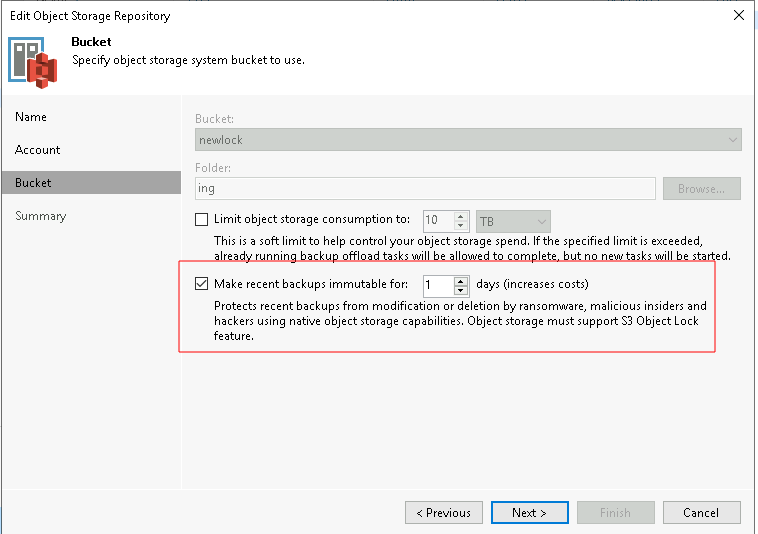- Sort Score
- Result 10 results
- Languages All
Results 81 - 90 of 792 for want (0.02 sec)
-
okhttp-testing-support/src/main/kotlin/okhttp3/DelegatingSSLSocket.kt
override fun getUseClientMode(): Boolean = delegate!!.useClientMode override fun setNeedClientAuth(need: Boolean) { delegate!!.needClientAuth = need } override fun setWantClientAuth(want: Boolean) { delegate!!.wantClientAuth = want } override fun getNeedClientAuth(): Boolean = delegate!!.needClientAuth override fun getWantClientAuth(): Boolean = delegate!!.wantClientAuth
Registered: Fri Sep 05 11:42:10 UTC 2025 - Last Modified: Wed Mar 19 19:25:20 UTC 2025 - 7.4K bytes - Viewed (0) -
cmd/bitrot.go
func bitrotVerify(r io.Reader, wantSize, partSize int64, algo BitrotAlgorithm, want []byte, shardSize int64) error { if algo != HighwayHash256S { h := algo.New() if n, err := io.Copy(h, r); err != nil || n != wantSize { // Premature failure in reading the object, file is corrupt. return errFileCorrupt } if !bytes.Equal(h.Sum(nil), want) { return errFileCorrupt } return nil }
Registered: Sun Sep 07 19:28:11 UTC 2025 - Last Modified: Wed Feb 26 19:26:13 UTC 2025 - 7.7K bytes - Viewed (0) -
docs/en/docs/how-to/separate-openapi-schemas.md
## Do not Separate Schemas { #do-not-separate-schemas } Now, there are some cases where you might want to have the **same schema for input and output**. Probably the main use case for this is if you already have some autogenerated client code/SDKs and you don't want to update all the autogenerated client code/SDKs yet, you probably will want to do it at some point, but maybe not right now.Registered: Sun Sep 07 07:19:17 UTC 2025 - Last Modified: Sun Aug 31 09:15:41 UTC 2025 - 4.6K bytes - Viewed (0) -
docs/integrations/veeam/README.md
Follow the steps from the Veeam documentation for adding MinIO as an object store - <https://helpcenter.veeam.com/docs/backup/vsphere/adding_s3c_object_storage.html?ver=100> For Veeam Backup with Immutability, choose the amount of days you want to make backups immutable for 
Registered: Sun Sep 07 19:28:11 UTC 2025 - Last Modified: Tue Aug 12 18:20:36 UTC 2025 - 5.5K bytes - Viewed (0) -
docs/en/docs/tutorial/header-param-models.md
<div class="screenshot"> <img src="/img/tutorial/header-param-models/image01.png"> </div> ## Forbid Extra Headers { #forbid-extra-headers } In some special use cases (probably not very common), you might want to **restrict** the headers that you want to receive. You can use Pydantic's model configuration to `forbid` any `extra` fields: {* ../../docs_src/header_param_models/tutorial002_an_py310.py hl[10] *}
Registered: Sun Sep 07 07:19:17 UTC 2025 - Last Modified: Sun Aug 31 09:15:41 UTC 2025 - 2.6K bytes - Viewed (0) -
cmd/xl-storage-format_test.go
version string format string want bool }{ {1, "123", "fs", false}, {2, "123", xlMetaFormat, false}, {3, xlMetaVersion100, "test", false}, {4, xlMetaVersion101, "hello", false}, {5, xlMetaVersion100, xlMetaFormat, true}, {6, xlMetaVersion101, xlMetaFormat, true}, } for _, tt := range tests { if got := isXLMetaFormatValid(tt.version, tt.format); got != tt.want {Registered: Sun Sep 07 19:28:11 UTC 2025 - Last Modified: Fri Aug 29 02:39:48 UTC 2025 - 17.5K bytes - Viewed (0) -
docs/en/docs/tutorial/query-params-str-validations.md
Notice that the default value is still `None`, so the parameter is still optional. But now, having `Query(max_length=50)` inside of `Annotated`, we are telling FastAPI that we want it to have **additional validation** for this value, we want it to have maximum 50 characters. 😎 /// tip
Registered: Sun Sep 07 07:19:17 UTC 2025 - Last Modified: Sun Aug 31 09:15:41 UTC 2025 - 17.2K bytes - Viewed (0) -
.teamcity/src/main/kotlin/configurations/PerformanceTest.kt
type.defaultBaselines, display = ParameterDisplay.PROMPT, allowEmpty = true, description = "The baselines you want to run performance tests against. Empty means default baseline.", ) param("env.PERFORMANCE_CHANNEL", performanceTestBuildSpec.channel())Registered: Wed Sep 10 11:36:15 UTC 2025 - Last Modified: Wed Feb 12 09:12:03 UTC 2025 - 5.9K bytes - Viewed (0) -
tests/embedded_struct_test.go
} expectAuthors := []string{"Edward", "George"} for i, post := range egPosts { t.Log(i, post.Author) if want := expectAuthors[i]; post.Author.Name != want { t.Errorf("expected author %s got %s", want, post.Author.Name) } } } func TestEmbeddedPointerTypeStruct(t *testing.T) { type BasePost struct { Id int64 Title string URL string }Registered: Sun Sep 07 09:35:13 UTC 2025 - Last Modified: Wed May 08 04:07:58 UTC 2024 - 7.3K bytes - Viewed (0) -
docs/en/docs/index.md
Registered: Sun Sep 07 07:19:17 UTC 2025 - Last Modified: Sun Aug 31 10:49:48 UTC 2025 - 21.3K bytes - Viewed (0)